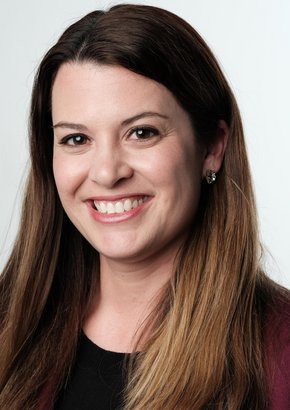
Dr. Tim Calahan
CTO at Michigan Medicine

Based in Ann Arbor, Michigan, and part of one of the world’s leading universities, Michigan Medicine is a premier, highly ranked academic medical centre and award-winning health care system with state-of-the-art facilities.
As its CTO Tim Calahan explains, as such a top-tier academic institution Michigan Medicine has the ability to significantly move the needle, not just for people within the State of Michigan, but throughout the world.
“We have a vision here at Michigan Medicine to deliver good care and train exceptional physicians, but also deliver that care throughout the State of Michigan in order to deliver that care and make those improvements globally,” Calahan describes.
With extensive experience in developing innovative solutions, specifically helping and assisting healthcare organisations moving to the cloud, Tim Calahan is CTO at Michigan Medicine, responsible for managing much of the technology that the organisation is putting in place.
One key area Michigan Medicine will be focusing on in this transformation is the moving of its Epic infrastructure to the cloud. One of the more complicated applications within a healthcare system’s ecosystem, Epic was not designed to run in the cloud. As Calahan describes, the decision to host healthcare records software Epic in the cloud when he was working at EMC was at the time controversial.
“Epic at the time were actually telling their customers they had to stay on-prem,” Calahan says. “So we were able to provide some very innovative solutions in terms of how to move Epic out of the data centre. As part of that journey we have really shifted the market in opening their eyes to the fact that organisations didn't have to maintain these internal data centres and that they could move things safely to the cloud.
“What brought me to the role here is Michigan Medicine has a strong desire to modernise their infrastructure, modernise how they do business and leverage cloud much more heavily and distinctly than they do today. Here at Michigan Medicine, they want to move everything to the cloud, and because of that desire and the alignment to that mission, I readily accepted the role and the position. We've been hard at work in mapping out what that would look like here for Michigan Medicine, and we're just now beginning to start that journey ourselves of moving workloads to the cloud.”
As Calahan describes, the healthcare industry is complex, particularly when it comes to injecting technology solutions. “You really have to think about it in terms of fixing the flat while the car's heading down the highway,” he says. “You have to be very sensitive to the fact that technology is very important in delivering patient care.
“When we talk about patient care, we are literally providing services around peoples’ lives. As a result we have to be very sensitive and careful about if we're going to change how we deliver care using technology, to make sure that we don't disrupt or degrade services.
“You are impacting peoples’ lives, and I can't count the number of emails that I've received over the last 10 years that I've been in the space, saying that the technology solutions that we're delivering have enabled the healthcare system to help a family member. That's really meaningful.
“We gravitate toward this industry, maybe because of the challenges and maybe because of the technology that we have to insert into it. But it's really the fundamental mission of delivering care and affecting families and loved ones that really keep you here in this industry, and that's exciting for me.”
Read the full story HERE.
Make sure you check out the latest edition of Technology Magazine and also sign up to our global conference series - Tech & AI LIVE 2024
**************
Technology Magazine is a BizClik brand


Featured Interviews
We’ve built some unique features into our insurance program specifically because we’ve listened to courier partners in every country






